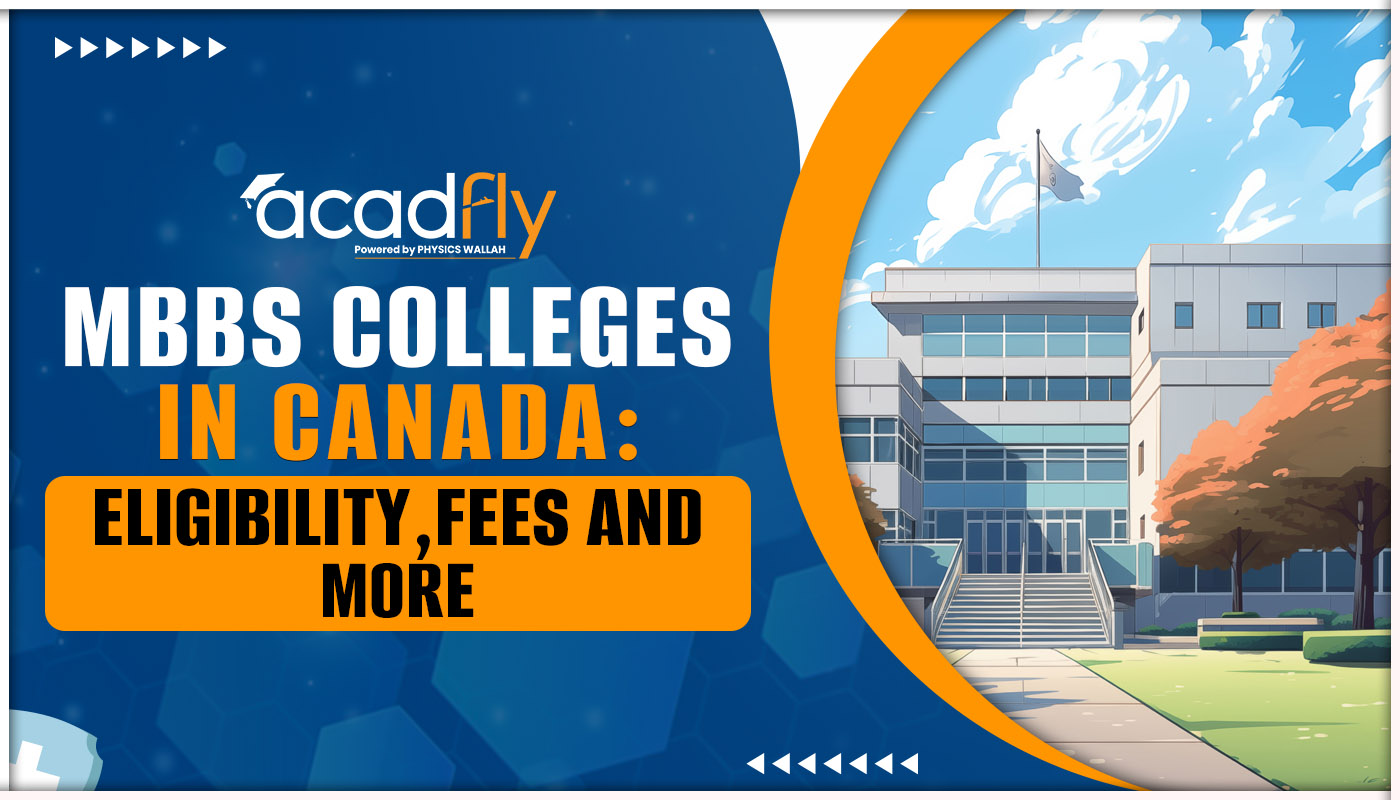

Studying marketing in Canada offers international students a world-class education in a diverse, innovative environment. Marketing is a dynamic field, and Canadian institutions provide a range of degrees and courses that cater to students interested in traditional marketing, digital marketing, and other specialties. This guide will provide an in-depth look at the requirements to study marketing in Canada, what you need to succeed in this field, and how to prepare for your journey to one of the best marketing programs in the world.
Why Study Marketing in Canada?
Canada is known for its high-quality education system, multicultural campuses, and post-graduation opportunities, making it one of the top destinations for students worldwide. Canadian universities offer specialized programs in various areas like digital marketing, advertising, consumer behavior, and market research for those interested in marketing. With the rise of digital technologies and globalization, marketing studies in Canada equip students with the practical and theoretical skills needed to excel in a fast-evolving industry.
Advantages of Marketing Studies in Canada
Studying marketing in Canada provides you with exposure to some of the most advanced marketing strategies and tools in the world. Canadian marketing programs emphasize hands-on experience through case studies, internships, and real-world projects, making graduates highly employable both in Canada and internationally.
Requirements to Study Marketing in Canada
Whether you're pursuing a marketing degree in Canada or enrolling in a master's in marketing in Canada, there are certain admission requirements you need to meet. The exact prerequisites vary depending on the program and institution, but most Canadian universities have common criteria for both undergraduate and graduate programs.
1. Academic Requirements for a Marketing Degree in Canada
Canadian universities maintain high academic standards, and to gain admission into a marketing program, students must meet specific academic qualifications.
Undergraduate Programs
If you're applying for an undergraduate marketing degree in Canada, you typically need to have completed secondary school (equivalent to high school) with good grades in English and mathematics. Many institutions require a minimum grade point average (GPA) that varies depending on the competitiveness of the program. Some top universities in Canada also prefer students who have completed courses in economics, business studies, or social sciences, as these are closely related to marketing.
Graduate Programs
For those pursuing a master's in marketing in Canada, you'll need to have completed an undergraduate degree in a related field like business, marketing, communications, or even economics. The required GPA for graduate programs is generally higher than for undergraduate programs, with a minimum of around 3.0 on a 4.0 scale. Additionally, you may need to provide proof of your proficiency in research methods, data analysis, and strategic thinking, as these are key skills for marketing professionals.
2. Language Proficiency Requirements
Since English and French are the official languages of Canada, proficiency in either language is essential for admission. Most universities offer programs in English, and you will need to submit proof of your English language skills if you're not a native speaker.
TOEFL/IELTS Scores
The most common way to demonstrate English proficiency is through TOEFL or IELTS scores. For undergraduate programs, a minimum score of 6.5 to 7.0 in IELTS or 90 in TOEFL (iBT) is typically required. Graduate programs, especially those in competitive fields like digital marketing in Canada, may ask for higher scores, ranging from 7.0 to 7.5 in IELTS or 100 to 110 in TOEFL.
French Language Requirements
If you're applying to universities in provinces like Quebec, where French is the primary language of instruction, you may be required to submit proof of proficiency in French. This typically involves taking a standardized test like the Test de Connaissance du Français (TCF) or the Diplôme d'Études en Langue Française (DELF).
3. Application Process for Canadian Marketing Universities
The application process for Canadian marketing universities is similar for both domestic and international students but has some additional steps for international applicants.
Step 1: Research and Choose Your Program
The first step is to research the various marketing courses in Canada and decide which program aligns with your academic background and career goals. Whether you’re interested in traditional marketing, digital marketing, or a specific niche, Canadian institutions offer a range of options.
Step 2: Prepare Your Documents
Once you've chosen your program, the next step is to gather all necessary documents. Commonly required documents include:
-
High school or undergraduate transcripts
-
Proof of English or French proficiency (IELTS/TOEFL or TCF/DELF)
-
Letters of recommendation
-
Statement of purpose outlining why you want to study marketing in Canada and your career aspirations
Step 3: Submit Your Application
After preparing your documents, you'll need to submit your application through the university's online portal or via a centralized application system, such as the Ontario Universities Application Centre (OUAC) for Ontario-based schools. Make sure to apply before the deadlines, which are usually several months before the semester begins.
4. Visa and Study Permit Requirements
International students must obtain a study permit to pursue marketing studies in Canada. Here’s a detailed look at the process.
Obtaining a Study Permit
To apply for a study permit, you need:
-
A letter of acceptance from a Designated Learning Institution (DLI) in Canada
-
Proof of financial resources to cover tuition, living expenses, and return transportation
-
Proof of no criminal record (police clearance certificate)
-
Medical examination results (if required)
-
A valid passport and recent photographs
Study Permit Application Process
The application process for a Canadian study permit can be done online or through a paper application. Ensure that all documents are complete and submitted correctly to avoid delays. Processing times can vary depending on your home country, so it's essential to apply as early as possible.
Work Opportunities for International Students
One of the advantages of studying in Canada is the ability to work while studying. International students with a valid study permit can work up to 20 hours per week during the academic term and full-time during scheduled breaks, such as winter and summer holidays. Gaining work experience while studying provides valuable insights into the Canadian marketing landscape, especially if you are focused on digital marketing in Canada.
Specializations in Marketing Studies in Canada
Canadian universities offer a variety of specializations in marketing, allowing students to tailor their studies to their specific interests. Whether you aim to become a marketing strategist or a digital marketer, there is a program to match your career goals.
Digital Marketing Canada
Digital marketing in Canada has gained immense popularity due to the rise of digital platforms, social media, and e-commerce. Universities offer specialized courses in SEO, content marketing, social media strategy, and data analytics, which are critical skills in the modern marketing landscape.
Marketing Management
Marketing management programs focus on developing leadership and strategic decision-making skills. This is ideal for students who wish to take on managerial roles within marketing departments or agencies.
Market Research and Analytics
Market research is a crucial part of understanding consumer behavior and preferences. Programs in market research and analytics focus on data collection, interpretation, and the application of data-driven insights to create effective marketing strategies.
Top Canadian Marketing Universities
Canada boasts some of the top marketing programs in the world, known for their cutting-edge curricula and emphasis on real-world applications. Here’s an overview of the best institutions to consider.
University of Toronto
The University of Toronto offers comprehensive undergraduate and graduate programs in marketing, with courses that emphasize innovation and global marketing trends. It is particularly well-known for its digital marketing offerings.
York University
York University in Toronto has a highly regarded master's in marketing in Canada program. It focuses on marketing research, consumer behavior, and strategic marketing, providing graduates with the expertise to tackle real-world marketing challenges.
McGill University
Based in Montreal, McGill University is one of the top universities for business and marketing studies in Canada. The school is known for its strong international ties and emphasis on research-based learning, offering students a global perspective on marketing practices.
University of British Columbia
The University of British Columbia (UBC) offers specialized programs in digital marketing, marketing analytics, and brand management. Its strong ties to the Pacific Rim market make it an excellent choice for students interested in global marketing strategies.
Western University
Western University’s Ivey Business School offers one of the best marketing programs in Canada, with a focus on real-world marketing strategies and leadership skills. The program offers hands-on learning through case studies and marketing simulations.
Tuition Fees and Financial Aid for Marketing Studies in Canada
Studying marketing in Canada comes with costs, but financial aid options are available to help students manage these expenses.
Tuition Fees
The cost of a marketing degree in Canada can vary widely depending on the university and program. Undergraduate degrees typically range from CAD 20,000 to 40,000 per year, while master's in marketing in Canada programs can cost anywhere from CAD 30,000 to 60,000 per year for international students.
Scholarships and Financial Aid
Many universities offer scholarships, bursaries, and financial aid packages to international students. These scholarships are often based on academic merit, leadership potential, or financial need.
Job Prospects After Studying Marketing in Canada
Graduates of marketing programs in Canada have excellent job prospects both within Canada and internationally.
Popular Career Paths
Some of the most common roles for marketing graduates include marketing manager, digital marketing specialist, market research analyst, brand manager, and content strategist. As businesses continue to expand their online presence, digital marketing in Canada is expected to see significant growth, offering numerous opportunities for new graduates.
Post-Graduation Work Permit (PGWP)
International students can apply for a Post-Graduation Work Permit (PGWP), allowing them to stay in Canada and work for up to three years after completing their studies. This allows marketing graduates to gain valuable work experience and potentially apply for permanent residency in Canada.
Comparison of Undergraduate and Graduate Marketing Programs
To provide a clearer understanding of what you can expect from undergraduate and graduate marketing programs in Canada, here’s a comparison of the two:
Before we delve into the specifics of undergraduate and graduate marketing programs in Canada, here is a table comparing the key differences between them:
|
Program Level |
Duration |
Focus Area |
Admission Requirements |
|
Undergraduate |
3-4 years |
Foundational marketing, consumer behavior, advertising |
High school diploma, English proficiency |
|
Graduate |
1-2 years |
Specialized fields (digital marketing, market research) |
Bachelor’s degree, relevant experience, references |
The table highlights the core differences between undergraduate and graduate programs, helping students make informed decisions based on their academic background and career aspirations.
Frequently Asked Questions
1. What are the entry requirements for marketing studies in Canada?
2. How much does it cost to study marketing in Canada?
3. Can I work while studying marketing in Canada?
4. Is digital marketing a part of Canadian marketing programs?
5. What job prospects are available after completing a marketing degree in Canada?









